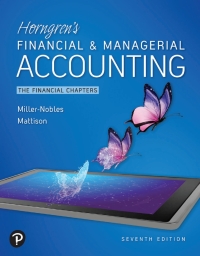

Upton Computers makes bulk purchases of small computers, stocks them in conveniently located warehouses, ships them to its chain of retail stores, and has a staff to advise customers and help them set up their new computers. Upton's balance sheet as of December 31, 2019, is shown here (millions of dollars): Cash $ 3.5 $ 9.0 Receivables 26.0 Accounts payable Notes payable Line of credit 18.0 Inventories 58.0 0 Total current assets $ 87.5 Accruals 8.5 Net fixed assets 35.0 Total current liabilities $ 35.5 6.0 Mortgage loan Common stock 15.0 Retained earnings 66.0 Total assets $122.5 Total liabilities and equity $122.5 Sales for 2019 were $425 million and net income for the year was $12.75 million, so the firm's profit margin was 3.0%. Upton paid dividends of $5.1 million to common stockholders, so its payout ratio was 40%. Its tax rate was 25%, and it operated at full capacity. Assume that all assets/sales ratios, (spontaneous liabilities)/sales ratios, the profit margin, and the payout ratio remain constant in 2020. Do not round intermediate calculations. a. If sales are projected to increase by $97.75 million, or 23%, during 2020, use the AFN equation to determine Upton's projected external capital requirements. Enter your answers in millions. For example, an answer of $10,550,000 should be entered as 10.55. Round your answer to two decimal places. $ 23.06 million b. Using the AFN equation, determine Upton's self-supporting growth rate. That is, what is the maximum growth rate the firm can achieve without having to employ nonspontaneous external funds? Round your answer to two decimal places. % c. Use the forecasted financial statement method to forecast Upton's balance sheet for December 31, 2020. Assume that all additional external capital is raised as a line of credit at the end of the year and is reflected (because the debt is added at the end of the year, there will be no additional interest expense due to the new debt). Assume Upton's profit margin and dividend payout ratio will be the same in 2020 as they were in 2019. What is the amount of the line of credit reported on the 2020 forecasted balance sheets? (Hint: You don't need to forecast the income statements because the line of credit is taken out on the last day of the year and you are given the projected sales, profit margin, and dividend payout ratio; these figures allow you to calculate the 2020 addition to retained earnings for the balance sheet without actually constructing a full income statement.) Enter your answers in millions. For example, an answer of $10,550,000 should be entered as 10.55. Round your answers to two decimal places. Upton Computers makes bulk purchases of small computers, stocks them in conveniently located warehouses, ships them to its chain of retail stores, and has a staff to advise customers and help them set up their new computers. Upton's balance sheet as of December 31, 2019, is shown here (millions of dollars): Cash $ 3.5 $ 9.0 Receivables 26.0 Accounts payable Notes payable Line of credit 18.0 Inventories 58.0 0 Total current assets $ 87.5 Accruals 8.5 Net fixed assets 35.0 Total current liabilities $ 35.5 6.0 Mortgage loan Common stock 15.0 66.0 Retained earnings Total liabilities and equity Total assets $122.5 $122.5 Sales for 2019 were $425 million and net income for the year was $12.75 million, so the firm's profit margin was 3.0%. Upton paid dividends of $5.1 million to common stockholders, so its payout ratio was 40%. Its tax rate was 25%, and it operated at full capacity. Assume that all assets/sales ratios, (spontaneous liabilities)/sales ratios, the profit margin, and the payout ratio remain constant in 2020. Do not round intermediate calculations. a. If sales are projected to increase by $97.75 million, or 23%, during 2020, use the AFN equation to determine Upton's projected external capital requirements. Enter your answers in millions. For example, an answer of $10,550,000 should be entered as 10.55. Round your answer to two decimal places. $ million b. Using the AFN equation, determine Upton's self-supporting growth rate. That is, what is the maximum growth rate the firm can achieve without having to employ nonspontaneous external funds? Round your answer to two decimal places. % c. Use the forecasted financial statement method to forecast Upton's balance sheet for December 31, 2020. Assume that all additional external capital is raised as a line of credit at the end of the year and is reflected (because the debt is added at the end of the year, there will be no additional interest expense due to the new debt). Assume Upton's profit margin and dividend payout ratio will be the same in 2020 as they were in 2019. What is the amount of the line of credit reported on the 2020 forecasted balance sheets? (Hint: You don't need to forecast the income statements because the line of credit is taken out on the last day of the year and you are given the projected sales, profit margin, and dividend payout ratio; these figures allow you to calculate the 2020 addition to retained earnings for the balance sheet without actually constructing a full income statement.) Enter your answers in millions. For example, an answer of $10,550,000 should be entered as 10.55. Round your answers to two decimal places








